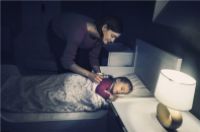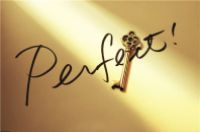
{Image from the beautiful book On Reading by photographer André Kertész}
标题:The Power of Curiosity for Creativity and Everything Else
作者:Margarita Tartakovsky, MS
原文链接:http://blogs.psychcentral.com/everyday-creativity/2015/10/the-power-of-curiosity-for-creativity-and-everything-else/
翻译请保留原文链接哦↑
欲翻译的小伙伴,可评论『领稿』,并把已完成的译文『发在自己的心理圈』or『个人主页』的日志内。请领稿的小伙伴,尽量在一个星期内完成翻译,谢谢!!
In the book The Upright Thinkers: The Human Journey from Living in Trees to Understanding the Cosmos,
author Leonard Mlodinow recounts a story his father told him about being in the Buchenwald concentration camp. One day, an emaciated fellow inmate gave his father a math puzzle to solve. He thought about it for several days but couldn’t figure it out. The next time he saw the inmate, he asked for the solution. But the man said he needed to solve it on his own.
Still Mlodinow’s dad kept asking. He just couldn’t get the puzzle out of his mind. His curiosity was too great. Eventually, the inmate relented and came up with a proposition: He’d reveal the answer in exchange for his crust of bread. Mlodinow wasn’t sure what his father weighed at the time. But when the Americans liberated him, he was 85 pounds. He parted with his piece anyway.
According to Mlodinow, “My father’s family was gone, his possessions confiscated, his body starved, withered, and beaten. The Nazis had stripped him of everything palpable, yet his drive to think and reason and know survived. He was imprisoned, but his mind was free to roam, and it did…”
To me this story is a reminder of the power of curiosity. It is a reminder of our mind’s need to know and understand and make sense of things. It is a need that’s even greater than our most basic needs.
It is a reminder, too, not to squander or silence our (or anyone else’s) inquisitiveness.
It is also a reminder of the gift that each of us has been given by living in a free country: the gift of having questions and seeking their answers; the gift of satiating our curiosity, without having to give anything up (like our one and only piece of bread).
I was born into a communist country with a history of shutting up and shutting down and punishing curiosity; of banishing people who dared to ask questions, because they were trying to make sense of things; a country that rewrote history to suit its needs and narratives; a country that banned writers, their books and the truth.
This might sound dramatic. After all, we’re just talking about creativity or learning something new — like learning more about knitting or playing the violin or how bees make honey.
But curiosity is a big deal — whatever shape or form it takes. It is the pursuit of information and insight. It is the exploration of charted and uncharted territory. It is adventure and the unknown. It is seeking the truth. It’s asking a whole lot of questions, which may or may not have clear-cut, straightforward answers.
For me curiosity means wondering about anything I please and being able to follow those crumbs; to investigate and research them; to explore them in my writing in any way I like.
Ultimately, Mlodinow’s story about his dad reminds me not to take curiosity for granted, and to give myself the space to be inquisitive every single day.
Because it is liberating and freeing and empowering to be able to ask the questions you want to ask; to seek the information you want to seek; to create your own experiments; to make the art you want to make.
Curiosity is the key to creativity. It opens the door. If we aren’t curious about our surroundings, our world, about stories and how things work, then our minds remain closed, damp and dark. But if we are curious, we discover all kinds of solutions, possibilities, wonders and more interesting questions. Even if those crumbs don’t lead anywhere (like to some big project), we still have the satisfaction of learning something new; of raising a question, of making an observation, and following it through.
In Big Magic: Creative Living Beyond Fear, Elizabeth Gilbert writes, “Curiosity is the truth and the way of creative living. Curiosity is the alpha and the omega, the beginning and the end.”
Curiosity is accessible, she writes, to all of us.
All of us can wonder and question and dig deeper and deeper. These are the makings of creativity, of fun, fascinating fulfilling days, even amid the responsibilities and struggles of adulthood and daily life.
What are you curious about? What questions arise on a regular basis? What do you want to learn more about, even a little bit? What comes after the words, “hmm, it’d be cool if …” or “that might be interesting …” or “I wish I knew more about …” ?
Follow those crumbs. Explore. Examine. Ask questions. Make things.
Because all of these are examples of using your voice. Of nourishing your mind and heart. Of satiating your hunger for knowledge and understanding — like Mlodinow’s dad did by giving up his piece of bread.




